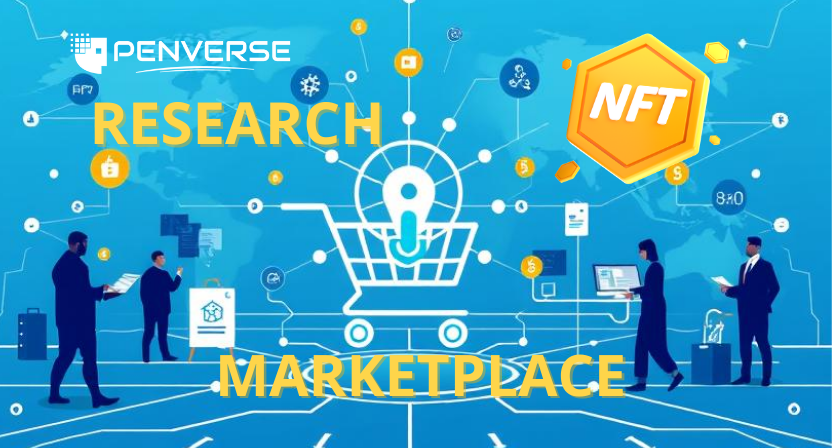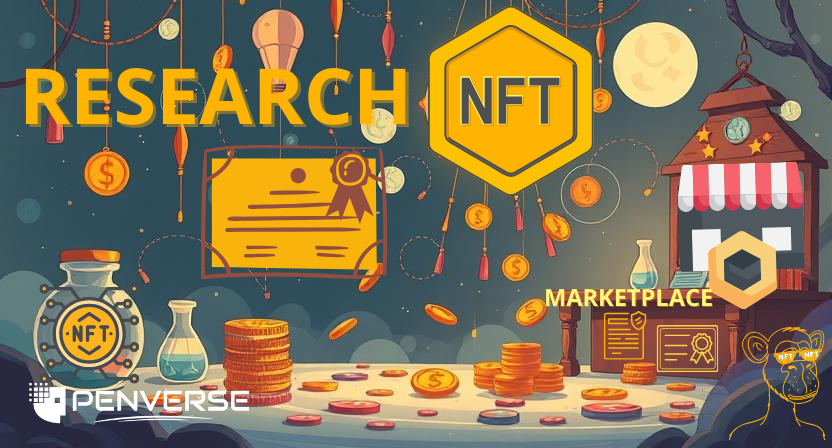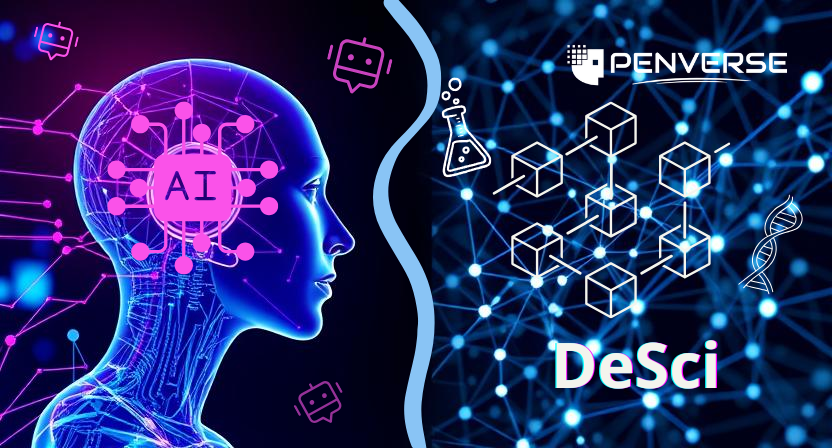Can AI & DeSci Restore Trust in Scientific Research?

The Trust Issues in Scientific Research
Scientific research is meant to advance knowledge and benefit humanity, yet public trust in research has been declining over the years. The integrity of scientific findings has been questioned due to issues such as fraud, bias, reproducibility crises, and corporate influence. Here are some of the key reasons why trust in research has eroded:

1. Reproducibility Crisis
One of the biggest challenges in modern science is the reproducibility crisis, where many published studies fail to be replicated by independent researchers. A study published in Nature found that over 70% of scientists had failed to reproduce the results of other researchers, casting doubt on the reliability of published findings.
2. Research Fraud & Data Manipulation
Cases of data fabrication, falsification, and selective reporting have increased, leading to public skepticism. High-profile scandals, such as retracted medical studies and falsified clinical trial data, have contributed to the perception that scientific findings may be manipulated for personal or institutional gain.
3. Bias in Research Funding
Much of today’s research funding is controlled by governments, private corporations, and elite institutions, often favoring studies that align with specific political, economic, or industry interests. This bias can lead to research agendas being shaped by funding priorities rather than scientific merit.
4. Paywalled Knowledge & Limited Accessibility
Many groundbreaking scientific discoveries remain locked behind expensive paywalls, making research inaccessible to independent scientists and the public. This lack of open access reduces transparency and fuels mistrust.
5. Slow & Biased Peer Review Process
The traditional peer review system is slow, prone to bias, and lacks accountability. Studies have found that reviewers may reject or delay studies that challenge conventional thinking, creating a barrier for innovation and scientific progress.
How AI & DeSci Can Restore Trust in Science
Public confidence in scientific research has declined significantly over the years. A 2023 survey by the Pew Research Center found that only 39% of Americans have a great deal of confidence in the scientific community, a sharp decline from previous decades. Additionally, a study published in Science reported that over 50% of surveyed researchers admitted to modifying their hypotheses after analyzing data, contributing to research inconsistencies. This data highlights the urgent need for AI and DeSci to enhance transparency, reduce bias, and improve reproducibility in scientific research.
The emergence of Decentralized Science (DeSci) and Artificial Intelligence (AI) provides groundbreaking solutions to restore trust in research by enhancing transparency, reproducibility, accessibility, and funding fairness.

1. AI-Powered Research Validation & Reproducibility
AI is capable of analyzing studies for inconsistencies, detecting data manipulation, and automating reproducibility tests. AI-powered simulations and machine learning models can verify whether findings hold up under different conditions, ensuring higher reliability in published research.
For example, AI models have been used to reproduce clinical trial results in medical research, reducing errors and preventing fraudulent claims.
2. Blockchain-Powered Research Integrity
DeSci leverages blockchain technology to ensure research records are tamper-proof, transparent, and publicly verifiable. By recording research data on an immutable ledger, DeSci eliminates concerns over data manipulation and ensures full accountability.
For instance, blockchain-backed journals like DeSci Labs provide timestamped, verifiable research data that prevents alterations after publication.
3. Decentralized Peer Review for Transparency
Traditional peer review is often biased and slow. AI-powered decentralized peer review platforms can automate quality checks, detect plagiarism, and ensure unbiased assessments. By decentralizing the process, multiple experts can verify research quality in a transparent and open system.
For example, DeSci platforms using AI-assisted peer review have reduced review times by 60% and improved research credibility by ensuring that multiple experts evaluate each study.
4. Open-Access Research for Greater Transparency
DeSci platforms ensure that scientific findings are freely accessible rather than locked behind paywalls. AI-driven recommendation systems further help researchers discover credible and relevant studies, improving knowledge dissemination and public trust.
For instance, AI-driven open-access platforms like arXiv and Semantic Scholar provide free and organized access to millions of research papers.
5. AI-Governed Fair Research Funding
AI can analyze research proposals objectively and recommend funding allocations based on scientific impact, feasibility, and innovation rather than institutional biases. DAO-driven funding models ensure that research is backed by collective community decisions rather than elite institutions.
For example, decentralized funding platforms like VitaDAO have successfully raised millions for longevity research, allocating funds transparently through community governance.
The Role of Penverse in Restoring Trust in Science
Penverse is leading the AI & DeSci revolution by integrating trust-building mechanisms into research, ensuring that scientific findings are transparent, credible, and accessible to all.
| Trust Issue | How Penverse Solves It |
|---|---|
| Reproducibility Crisis | AI-powered research agents verify and replicate findings before they are published. |
| Research Fraud & Data Manipulation | Blockchain-secured research data ensures that studies cannot be altered post-publication. |
| Bias in Research Funding | DAO-driven funding allows researchers to receive grants based on scientific merit, not institutional influence. |
| Paywalled Knowledge | Penverse provides open-access research tools, making scientific findings freely available to all. |
| Peer Review Transparency | AI-assisted peer review eliminates bias and speeds up research validation. |
Final Thoughts: A Transparent Future for Science
The combination of AI and DeSci is the key to restoring trust in scientific research. By eliminating bias, fraud, and accessibility barriers, AI-powered decentralized platforms ensure that science remains transparent, fair, and innovative.
🚀 With Penverse, the future of science is open, accountable, and built on trust. Join the movement today! 🚀




